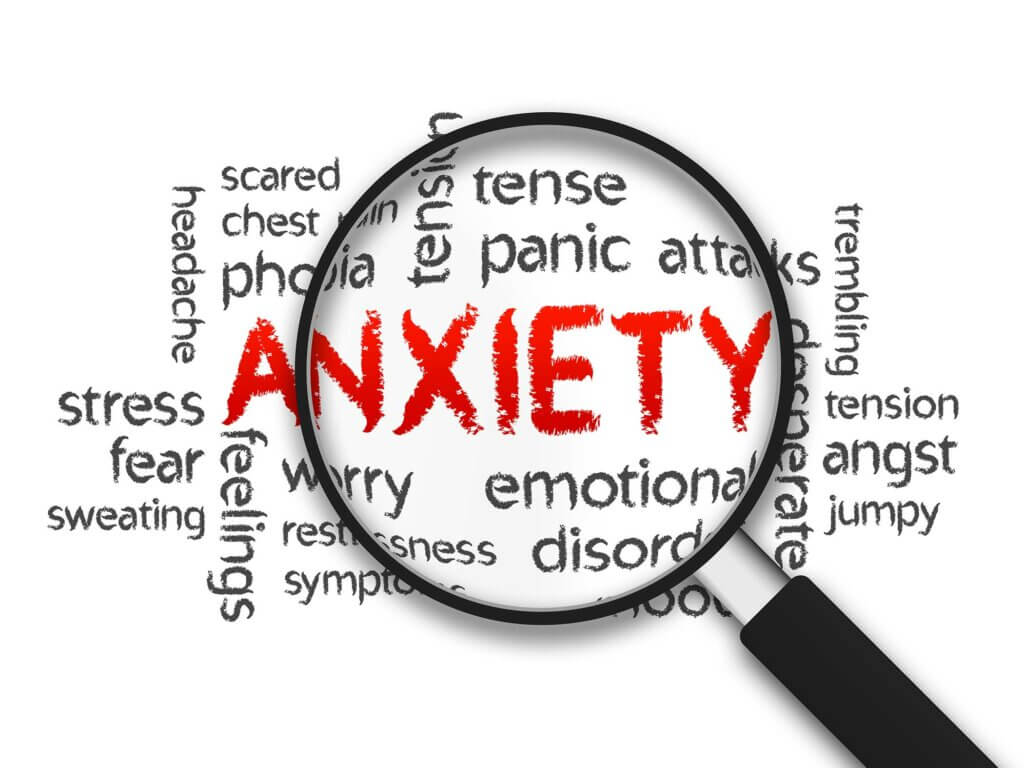Feeling Anxious for an Exam? You’re Normal!

Not many people would admit to enjoying the process of taking a test. For most of us, test-taking is an uncomfortable process which we endure to achieve a goal. To some degree, almost everyone feels anxiety when it comes to taking a test. Why it happens and the severity of the anxiety depend on a variety of circumstances, but there are steps that you can take to minimize the effects of test anxiety and feel more confident in your testing situation.
CAUSES
According to the University of North Carolina at Chapel Hill, there are several things that can cause test anxiety.
Fear of failure: Sometimes, pressure can be motivating. The desire to succeed can move you to try harder to achieve your goal. Unfortunately, it can also be hard on your self-worth. If you associate the results of the test with your personal value, you will naturally feel a lot more pressure-induced anxiety.
Lack of preparation: The time to begin studying for any exam is long before the date you need to take it. Waiting until the last minute to try and cram all the information in right before the exam can cause you to feel anxious and overwhelmed.
Poor test history: If you struggled with taking tests when you were in school, you may still feel anxious taking tests as an adult. All those memories (and feelings) can still be connected to the thought of having to text now that you’re older.
High pressure: Testing as an adult means more than a grade. Testing now equates to your career, so there is a very high level of pressure associated with whatever exam you are preparing for. You may be focused on the results because your family is counting on you for a good outcome.
Perfectionism: Do you demand perfection from yourself? If so, you may be creating additional stress for yourself. You are not perfect, but no one is! Expecting perfection on a test could be creating enough pressure to actually cause yourself to fail.
SYMPTOMS
The symptoms of test anxiety differ from person to person, but there are several common experiences.
Physical symptoms: Headache, nausea, excessive sweating, shortness of breath, rapid heartbeat, lightheadedness, and feeling faint. Test anxiety can also cause panic attacks including the abrupt onset of intense fear or discomfort causing you to feel like you can’t breathe or even like you are having a heart attack.
Emotional symptoms: Feelings of stress, fear, helplessness, and disappointment, consequences of failure, feeling inadequate, helpless, or sadness.
Behavioral/cognitive symptoms: Difficulty concentrating, thinking negatively, comparing yourself to others, and procrastinating, negative thoughts about past poor performances, mind going blank, and racing thoughts.
HELP FOR TEST ANXIETY
Despite how overwhelming text anxiety can feel, there are some proven techniques that can help to minimize or even eliminate the feeling.
Well before the exam
Be prepared: Start studying at least a few weeks in advance so that you have enough time to prepare for your test.
Study effectively: Space your study time into smaller chunks over time. Don’t try to cram all your studying in at the very end or you may increase your anxiety instead of reducing it.
Engage in self-care: Take care of yourself by eating well, getting enough sleep, incorporating a little exercise or movement into your day, and participating in relaxing and fun activities that you enjoy.
Create a calming worksheet: A calming worksheet is a paper that you can carry with you all the time and especially before your exam. On this paper you can put motivational quotes, why you will succeed, breathing techniques, pictures of your supporters, and anything else that will keep you motivated without making you anxious. Create this several days in advance, when you are not stressed and anxious, and keep it with you in case you become anxious.
Create a support team: Contact friends or family members whom you can call for a quick pep talk in the days leading up to your exam.
Immediately before the exam
Get a good night’s sleep (7-9 hours) the night before the exam. Your ability to think clearly and to deal with anxiety improves with sleep.
Eat something to help with focus and attention. Bring water to stay hydrated.
Avoid too much caffeine. If you’ve been hitting the caffeine hard to stay awake and study or to stay focused, know that it can also have a negative effect on your nerves.
Gather all the materials you need in advance, such as a pencil, eraser, or calculator, so that you are not rushing around before the exam.
Play calming or familiar music to help you relax.
Arrive to the exam early enough to sign in and complete your onboarding.
Don’t let the exam define you. Remember that your self-worth and intelligence do not depend on your performance on this one exam.
Give yourself a pep talk to reframe your anxiety as excitement. Telling yourself you’re excited will help you see the exam more positively and experience more positive emotions.
During the exam
Calm your body.
- Breathe deeply from your belly.
- Tighten various muscle groups, and then relax them.
- Stand and stretch or shrug shoulders.
- Close your eyes and count to ten.
Sit comfortably.
- Sitting up, relaxing your shoulders, and being mindful of your posture can help you feel more powerful, confident, and assertive. It makes you less stressed, sluggish, and anxious.
- Research shows that slouching and hunching poses decrease people’s persistence and creativity when trying to solve complex problems and increase negative self-thoughts.
- Research shows people have higher self-esteem and think of themselves more positively when they sit upright rather than hunched.
Calm your emotions and thoughts.
- Focus only on the present moment to help you stay grounded.
Example: “I am sitting at a desk in Carroll Hall. It is 2:00 pm on Tuesday.”
- Avoid thoughts about the future or past.
Example: “I need to pass this certification for my job.”
Example: “I should have done more practice problems.”
- Replace negative thoughts with positive ones.
Example: “It’s okay if I can’t answer this question—I can answer another question instead.”
- Stay focused on the current task, which is to complete the test, not on how you believe it relates to your self-value.
- Keep realistic expectations. Often, it is not realistic to expect a 100% on an exam. Be okay with doing well, not perfectly.
- Focus on yourself and what you are doing. Ignore other people around you and don’t compare yourself to others.
You’ve Got This!
Test anxiety is very common and very normal. It’s a sign that this exam matters to you, and you want to do well on it. Instead of focusing on the negative aspects, look for ways you can reframe the negative emotions as positive! And remember: you’ve made it this far! An exam is really only one more step out of all the many steps you’ve taken to get here! If the suggestions in this article helped you, leave us a comment and share your experience with others!


